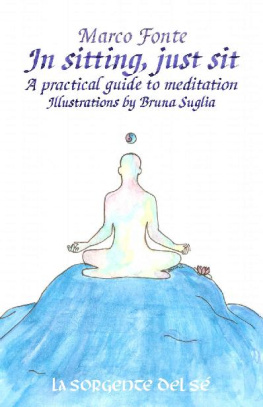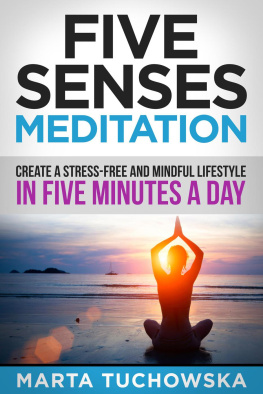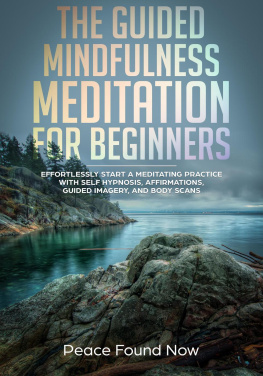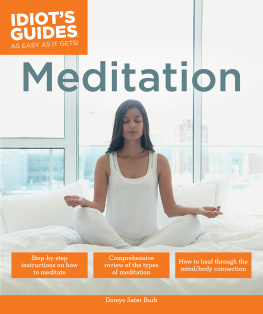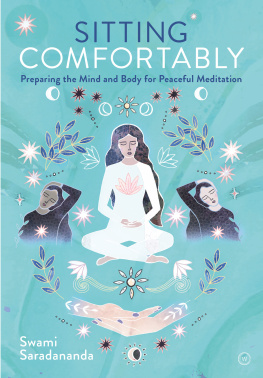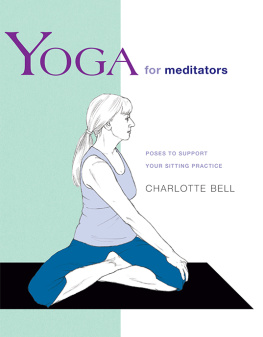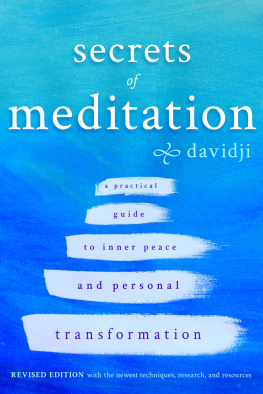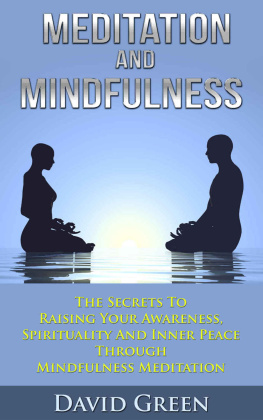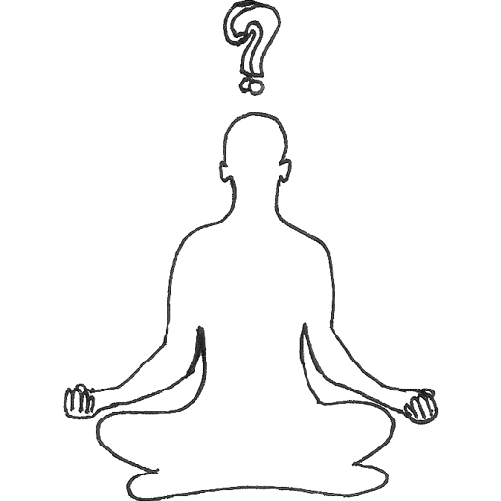In sitting, just sit. (c) 2019 B. Suglia
The purpose of this practical little manual is to bring the practice of meditating into everybodys reach. Meditation is both healthy and extremely simple. However, most people dismiss it as a waste of time or as if it were some sort of ideology.
These pages are meant to reassure you, showing how meditation is mainly a physical workout, even though its biggest effects impact your mind and inner side, and how it can help you manage your productivity and the most practical aspects of your everyday life.
Im too busy to meditate!
If you picked up this little book, I assume that you have considered at least once that meditating can be good for you. In other words, that a pause from stress and frenzy can be good for you. Maybe as a distant, sketchy idea, without mentioning it aloud to anyone, because in our Western world, resting is generally seen as wasting your time. We are about to see how it is an extremely productive and profitable investment, but we will get there in little steps.
We were raised in a busy world, with parents and acquaintances always absorbed in doing this and that. Think about it: what is really considered important, in order to have good consideration from the people around you, is theveryact of working hard, showing yourself always busy, much more than the results you get from hard work. I dont have time is a mantra (an idea we are going to be familiar with, some words that, repeated on and on, have the power to shape your thoughts and your life) you have been hearing over and over since you exist, above all associated to things that are healthy to do. The ones that people should really do now, for their own good, and they deny having the time even when its crucial for their own health.
I dont have time to have myself examined. I dont have time to go to the gym. I dont have time to read a single page. I dont have time for a healthy meal. I dont have a second to get some rest. With all this busy refrain, Im not surprised no one ever claims a minute for an activity that is the most passive you can imagine, the most idle, the one you cant see any results from in the short run: meditating. Outrageous! Unprofitable! Indolent and insolent thanklessness, slacking around while others are working hard and risking a stroke instead of you.
So, one of the biggest obstacles to dedicating time to your well being is a sense of guilt we accept from a very young age. This sense of guilt snowballs into a sense of uselessness for everything that doesnt require our hard work, or doesnt push what we can tolerate, or doesnt give plain and immediate results so that you can show them around to justify evading precious minutes of hard work.
But is it actually useless? Is it really unprofitable to commit some time to your own health?
Imagine watering a plant where it doesnt rain.
It isnt growing fast enough for you to notice, but its still feeding from your water. For a few weeks you cant see any sprout yet because its busy growing strong roots. Even after it sprouts you wont be able to see it grow before your eyes, but only thanks to your commitment will it rise luxuriant, giving you shadow and fruits, not to mention some oxygen. If you decide not to listen to the hopeless busy, and to invest some time into an apparently useless activity, be aware you cant expect any sprout during the first month, so you are going to fight against your own judgment too. After that, you will slowly notice observation and focus skills like you never thought was possible, besides feeling better, and the time you invested is getting back to you multiplying your ability of turning it into results.
If we challenge at least a little the Western paradigm of always having to be busy, if you can accept that, all things considered, you have both the time to care for your health and the right to take it, then we can move on and see a little more in detail what this strange activity, which isnt an activity, can do for you.
Why meditate at all?
We already discussed a few things that meditation can do for you, while silencing our inner voice that makes us shy away in terror from anything that isnt showing us into stress and work. The very first advantage you can expect is decreasing and managing your stress.
Right after that, since meditation trains attention, follows an improvement in concentration and willpower. As a direct consequence, some of us might experience a better ability to make the most of our own time, if we can identify and reduce our useless efforts and the feeling of not going anywhere with results.
Another long-term effect in constant everyday practice has to do with your immune systems strength, improving your resistance to colds, flu, and other illnesses. No, you cant have an invincible shield, but rather an ability to resist a little more often to ill friends and coworkers.
Another consequence is a significant enhancement in self-awareness and the ability to spot some of your minds inner workings which are normally confined in the subconscious world, since they are never observed. This makes meditation a precious personal development tool, particularly useful to study your own habits so that you can successfully review and change them.
Different forms of meditation are a key component in practices that push the human body and mind to overcome their limits in concentration and performance, such as martial arts and various spiritual research paths. The four daily hours of silence and stillness which are routine in most Buddhist monasteries are just an example, but also religious prayer performed with focus and commitment has the same features of meditation and the same effects on the practitioner.
Of course there are reasons not to meditate, too. Psychiatric patients, or whoever feels they have stress and discomfort problems so seriousthey requiremedical treatment, definitely need this medical treatment, and should ask their doctor before undertaking any significant path. The weight of difficulties andcommitment in such a context might bring more harm than help.
Besides, you should simply consider the possibility that it just isnt the path for you. There are several billions of us on the planet, and we are all different from one another.
In the previous chapter I said you should let a month pass before expecting metaphorical sprouts from your plant. If after a month of uninterrupted practice, without skipping a day, you dont see any results, or rather you feel your mood and exhaustion getting worse because of the hard task, then this might just not be your way. Unfortunately no one can tell in advance if it is. It could also happen that in some years your circumstances change, and that finding this booklet again from under a pile of junk it can finally give you some benefit.
If you are still interested in this strange meditation thing, lets move on.
What is this meditation thing

